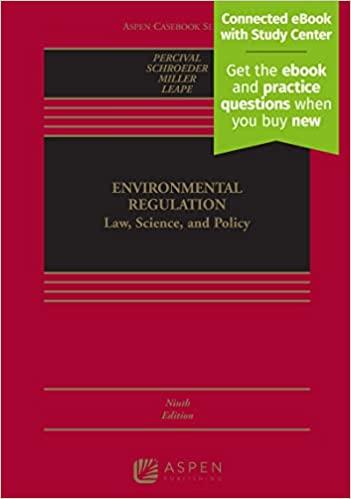Question Two Consider the following scenarios and, in each case, assess the application of European Union law as directed. (a) (b) (C) Aaliyah works as a driver for Region Midtjylland, the local government covering Central Denmark. During the course of her job, Aaliyah was involved in a road traffic accident, in which she suffered serious injuries. Investigations into the accident revealed that Aaliyah was not at fault for the accident but that the cause was a failure to maintain the vehicle, in which Aaliyah was travelling, as required by a (fictitious) European Union Directive. The Directive requires that employers providing vehicles for their employees follow a detailed schedule of maintenance and repairs. The Directive also sets out levels of compensation to be granted where injury or death results from a failure to comply with its terms. Region Midtjylland, Aaliyah's employer, admits that it did not follow the schedule set out in the Directive, and that its failure to do so was the cause of the accident and Aaliyah's injuries. However, it has refused to pay compensation to Aaliyah because the Directive has not been transposed into Danish law. Aaliyah seeks advice as to the application of the direct effect principle in this case. A (fictitious) European Union Directive provides for workers in the social care sector to be paid at a minimum rate of ten Euros per hour. The Directive also includes a provision that the hourly calculation must include time spent travelling, if workers are providing the care in clients' own homes. Hungarian legislation, enacted to give effect to the Directive, provides for a minimum ten Euro per hour rate for workers in \"health and care roles\". However, the legislation also imposes a at rate, equivalent to ve Euros per hour, for time spent travelling between clients' homes. The union representing social care workers has expressed concern that the Directive has not been properly implemented and that its members are not receiving the appropriate levels of pay. The union has particular concerns that most care providers in Hungary are private companies, meaning that workers cannot enforce their rights through the application of the direct effect principle. Advise the union on the application of the principle of indirect effect to this situation. There has been recent litigation in the Maltese courts, concerning the application of a European Union Regulation. The case eventually reached the Maltese Supreme Court, where it was argued by the claimant that the Court was obliged to request a preliminary ruling from the Court of Justice of the European Union. The Supreme Court refused to do so. It has since become clear that the Maltese Supreme Court's decision was incorrect, and that it was, indeed, obliged to make the request. It is also clear that its failure to do so had a significant nancial impact on the claimant. Advise on the application of the principle of Member State liability in such an instance







